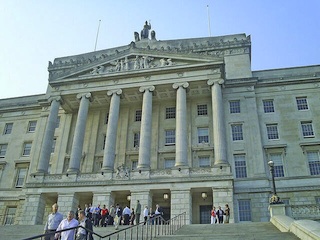|
Welcome to Powerbase—your guide to networks of power, lobbying and deceptive PR.
Northern Ireland was established in 1921, consisting of the six North-eastern counties which remained in the United Kingdom following the Anglo-Irish Treaty which ended the Irish War of Independence.
It has remained deeply divided between a largely Protestant unionist majority which favours a continuing relationship with Britain, and a largely Catholic nationalist minority which favours unity with the Republic of Ireland.
Unionist domination came under increasing challenge in the late 1960s with the emergence of the civil rights movement. By 1969, the situation had erupted into a violent conflict, the Troubles, which would go on to cost more than 3,700 lives and would not wind down until the emergence of the peace process in the 1990s.
Propaganda, disinformation and various forms of covert political action were practised by all sides during the conflict. In the aftermath of the Troubles, truth recovery regarding the roles of the major actors remains a key issue with particular controversy surrounding allegations of state collusion with both loyalist and republican paramilitaries.
Post-conflict, the creation of the Northern Ireland Assembly has paved the way for more mundane forms of political spin, such as the emergence of a Northern Ireland lobbying industry.
|
 Stormont, seat of the Northern Ireland Assembly in Belfast. Photo: John Connell |